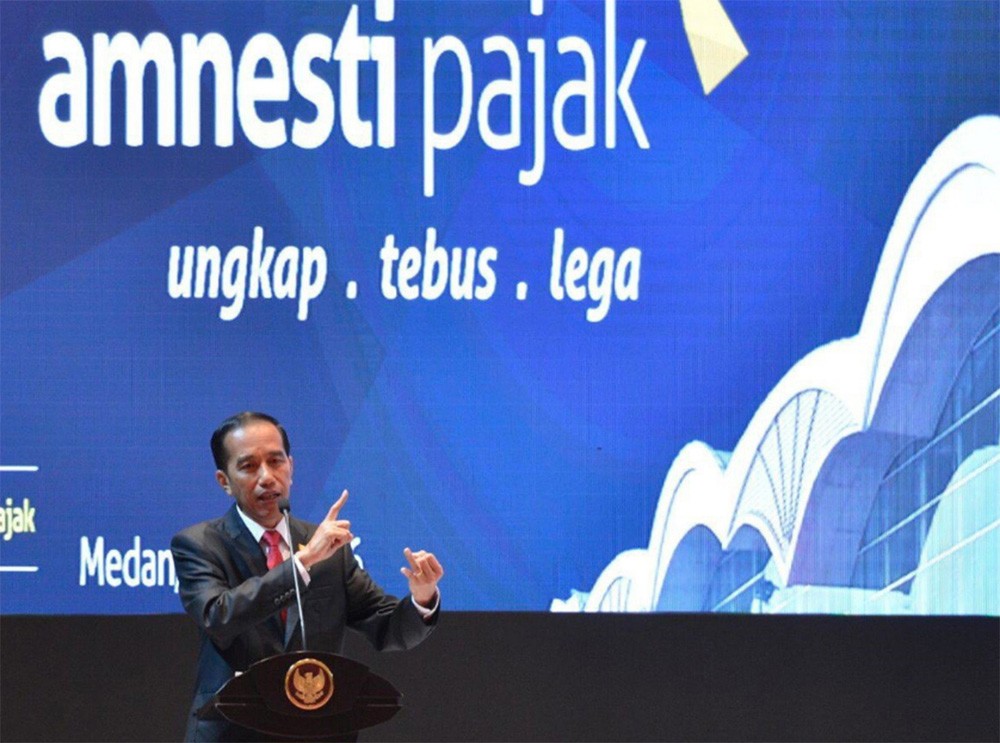Popular Reads
Top Results
Can't find what you're looking for?
View all search resultsPopular Reads
Top Results
Can't find what you're looking for?
View all search resultsWhy Indonesia’s domestic tax haven is a bad idea
Change text size
Gift Premium Articles
to Anyone
I
n the latest move to revamp the tax system in Indonesia, the government is considering setting up tax haven areas to entice home money that was stashed abroad.
The idea was initiated by former finance minister Bambang Brodjonegoro who believed that the distinct region could facilitate the investment of funds repatriated through the ongoing tax clemency program.
Recently, the proposal was also endorsed by President Joko “Jokowi” Widodo. In his speech during the tax amnesty program conference in Semarang recently, he said that Indonesia had the capacity to develop a tax haven jurisdiction on one or two islands in a bid to be a more tax attractive country.
Echoing the President’s assertion, Coordinating Maritime Affairs Minister Luhut Pandjaitan further cited the Bintan and Rempang islands as the possible areas to be designated as low tax regions.
Establishing a tax haven jurisdiction within a country — tax literature often calls it a domestic tax haven — is not a new concept.
The United States, for example, despite having one of the highest corporate income taxes in the world (35 percent at the federal level), also has four states without a corporate income tax: Nevada, South Dakota, Washington and Wyoming.
Furthermore, the state of Delaware provides similar domestic tax havens because of its lack of reporting requirements, lack of ownership records and ample tax facilities that could help corporations convert taxable income into tax exempt income.
Comparable to the US, Malaysia developed Labuan Island into a domestic tax haven back in 1990 and has been renowned for its role in the niche market of offshore Islamic banking.
It comes with no surprise, however, that both countries are ranked third and 18th in the 2015 Financial Secrecy Index issued by the Tax Justice Network — which indicates their high financial secrecy and extensive tax haven activities.
Back to the discussion on the government’s proposal to set up a domestic tax haven, I feel that the move is a bad idea and could hamper the development of Indonesia’s tax reform plan. There are at least three arguments to support my view.
First, establishing a domestic tax haven area will send a wrong message to taxpayers, especially in the midst of the current tax amnesty program. As often discussed, the success of a tax pardon program in the long run is contingent on the ability of the government to detect and prosecute any taxpayers (the “stick”) who still do not meet their tax obligations.
Such tougher measures are important, in order to create a sense of justice and equality for the honest taxpayers after the government grants clemency (the “carrot”) to the avoiders.
By setting up a domestic tax haven, it could create a signal that the government is unwilling to draw a hard line against the tax dodgers, as a tax haven will provide a leeway for corporations and rich individuals to escape their tax obligations.
Even worse, it could also suggest that the government is promoting tax avoidance practices in Indonesia.
This leads to my second point of argument against a domestic tax haven: The proposal is unpopular in the current climate of global fight against tax evasion and tax havens.
In the aftermath of a global financial crisis, many countries and global institutions started to question the role of tax haven jurisdictions in concealing massive amounts of wealth around the globe.
In recent years, this global movement — led by Organization for Economic Co-operation and Development (OECD) — has gained some significant traction, which culminated with more than 98 countries and jurisdictions joining the OECD’s Convention of Mutual Administrative Assistance in Tax Matters. The convention requires an exchange of information open to all countries, thus ensuring that developing countries would benefit from the new more transparent environment.
Surely, Indonesia’s domestic tax haven proposal will be considered contradictory in the course of global efforts to end offshore financial secrecy and abusive tax havens.
Such an untenable position could be problematic, especially if Indonesia needs to negotiate a trade deal or economic cooperation with other countries.
Finally, as often documented by various reports, tax havens serve no useful economic purpose, limit the capacity of a country to raise revenues through taxation and distort the global economy.
Worryingly, without clear directions, strong regulation and strict supervision, the creation of Indonesia’s domestic tax havens could provide a safe passage for the proceeds of political corruption, fraud schemes and other criminal activities such as money laundering, the global drug trade, trafficking and terrorism.
As such, it could contribute to the spread of globalized crimes and facilitate the theft of public funds by corrupt members of the elite.
Moreover, as the domestic tax haven facilitates rich people avoiding their tax obligations, it could leave a major social scar in the form of inequality.
This is possible as the government may compensate the tax revenue loss by increasing the taxes on taxpayers who are less wealthy and less knowledgeable about taking advantage of tax havens.
Overall, despite a substantial pressure on government to improve its tax revenue outlay, establishing a domestic tax haven is clearly not a sound option to support the sustainable tax system in the future, given the arguments that I discussed above.
__________________________________
The writer, a senior faculty member of the Accounting and Finance Department of BINUS University, is currently pursuing a PhD in Monash University, Australia. His research interest is about corporate tax avoidance and financial statement fraud.









